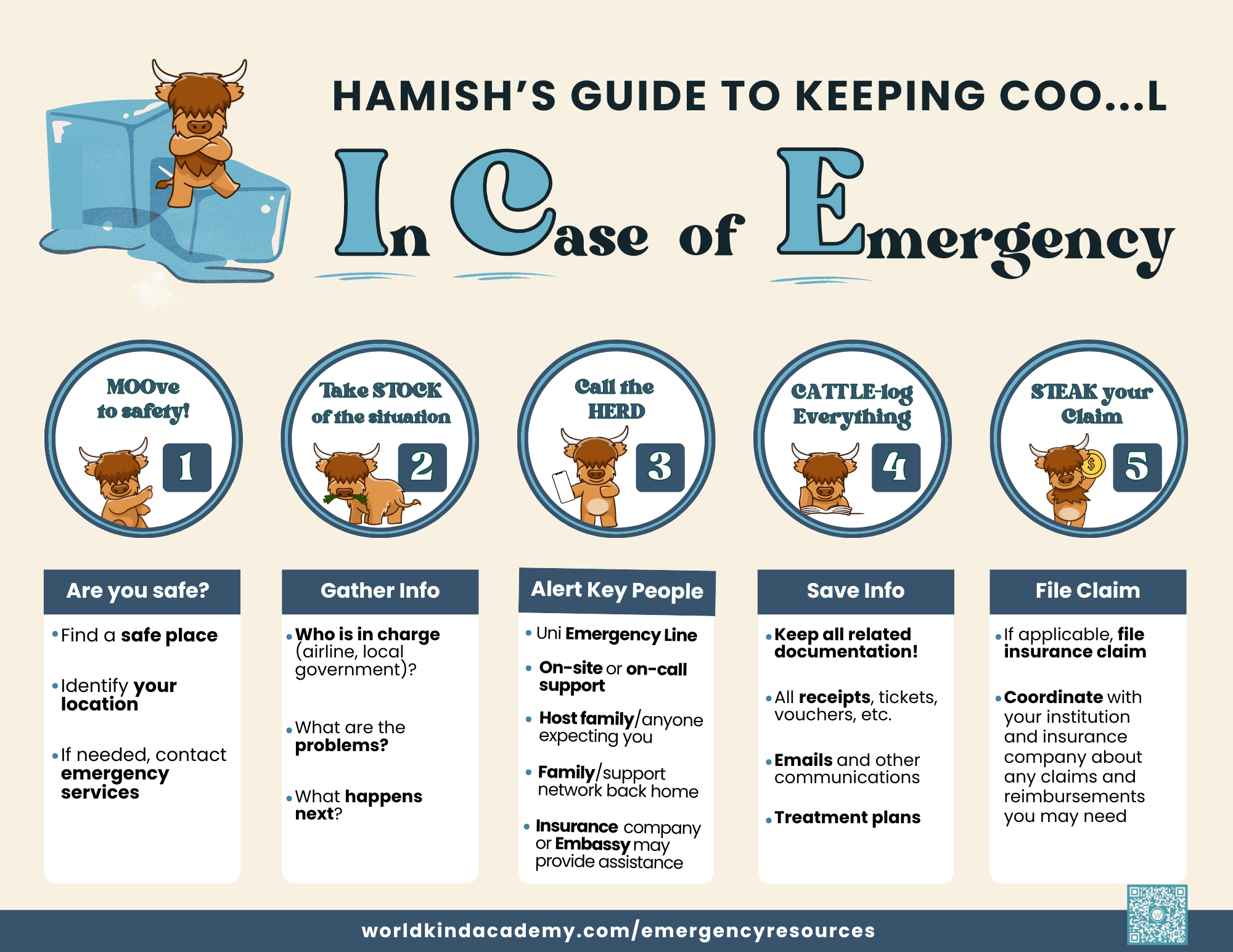Emergency Resources
Essential first contacts and useful resources if you encounter problems during your international experience.
For anything not covered below, check the U.S. State Department website:
U.S. State Department Emergency Help
Mental Health
Loss and Theft
Essential References
Steps to Take in an Emergency

Enjoying our free resources?
We'd love to hear how you're using them.
Write your awesome label here.
Write your awesome label here.
Write your awesome label here.
Write your awesome label here.
Bookmark today!
Emergency Resources
Essential first contacts and useful resources if you encounter problems during your international experience.
For anything not covered below, check the U.S. State Department website:
For anything not covered below, check the U.S. State Department website:







